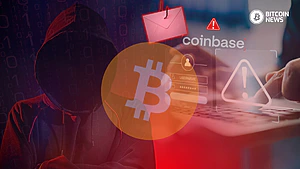Louisiana has taken a significant step toward embracing the future of digital finance by accepting bitcoin as valid forms of payment for government services.
This marks a major milestone for the state as it becomes one of the first in the United States to integrate Bitcoin into its financial system.
In a bold and innovative move, Louisiana’s State Treasurer John Fleming announced that residents can now use bitcoin, Bitcoin Lightning Network, and USD Coin (USDC) to pay for state services.
This includes payments for things like hunting and fishing licenses, fines, and other fees. The state has already received its first bitcoin payment through this system, marking a new era in how government transactions are handled.

Louisiana’s acceptance of bitcoin comes as part of a broader effort to modernize government operations and provide more flexible payment options for its residents.
In a press release, Treasurer Fleming emphasized the significance of this development, stating:
“In today’s digital age, government systems must evolve and embrace new technologies. By introducing cryptocurrency as a payment option, we’re not just innovating; we’re providing our citizens with flexibility and freedom in interacting with state services.”
The first digital asset payment made to the state was a fine paid to the Louisiana Department of Wildlife and Fisheries, using Bitcoin Lightning.
This new payment option is not only convenient for residents but also offers a more secure and efficient way to handle transactions, reducing the chances of fraud while streamlining the payment process.
To ensure the state doesn’t have to handle the volatility often associated with digital assets, Louisiana has partnered with Bead Pay, a company specializing in converting digital asset payments into U.S. dollars.
This means that while residents can pay with bitcoin, the state receives the payment in U.S. dollars. Bead Pay’s service mirrors that of credit or debit card transactions, ensuring a seamless and secure process.
The integration of Bead Pay has been instrumental in allowing Louisiana to adopt bitcoin without the complexities of directly managing digital assets. By using a third-party service like Bead Pay, the state remains shielded from the market fluctuations of digital currencies.
Jay Sykes, the CEO of Bead Pay, highlighted his company’s role in facilitating these payments, stating:
“As one of the pioneers in the realm of cryptocurrency transactions, our role is to ensure these payments are not only efficient but also secure […] We’re focused on removing the traditional barriers associated with cryptocurrency, such as volatility and fraud risks, making it a reliable option for government transactions.”
The introduction of bitcoin payments offers numerous advantages to both the residents of Louisiana and the state government.
One key benefit is the added convenience for citizens who prefer using digital currencies. Residents can now use any private, non-custodial wallet to make payments, providing them with more freedom in how they manage their finances.
Additionally, the use of Bitcoin is expected to reduce the number of fraudulent transactions.
Bead Pay ensures that all transactions adhere to strict anti-money laundering (AML) and Know Your Customer (KYC) regulations, which adds an extra layer of security to the payment process.
By offering these new payment options, Louisiana aims to position itself as a leader in adopting emerging technologies. This could help attract tech companies and investors to the state, fostering economic growth and innovation.
While Louisiana has made history by accepting bitcoin payments, the state is not stopping here. The government plans to continue expanding its use of digital tools, including exploring blockchain technology to further modernize its financial infrastructure.
Fleming’s vision is to make Louisiana a trailblazer in the adoption of digital currency and other innovative technologies. “We expect to see a lot more,” he said. “The crypto market just in four years is projected to be 7.5 trillion dollars by 2028.”
Other state officials are equally enthusiastic about the new direction. Louisiana State Representative Mark Wright, who has been a strong advocate for digital assets, expressed his support for the initiative.
“I have been proud to author several bills related to digital assets and to Chair the State Treasurer’s task force in 2022,” Wright said.
He added, “I’m excited to see Louisiana further expanding its payment options under Treasurer Fleming. I look forward to working with him and others so that Louisiana will continue to be a leader in accepting digital payments.”
While Louisiana is leading the charge in Bitcoin adoption for state payments, the real turning point will come when governments start accepting bitcoin directly, without converting it into U.S. dollars first.
Some experts believe that stablecoins like USDC, which are pegged to the U.S. dollar, will be the first digital currencies governments might accept directly. From there, it’s possible that states could begin accepting Bitcoin.
For now, Louisiana’s move to accept Bitcoin is an exciting development that could inspire other states to follow suit. As more people and businesses embrace digital currencies, we may see more governments modernize their financial systems in similar ways.










